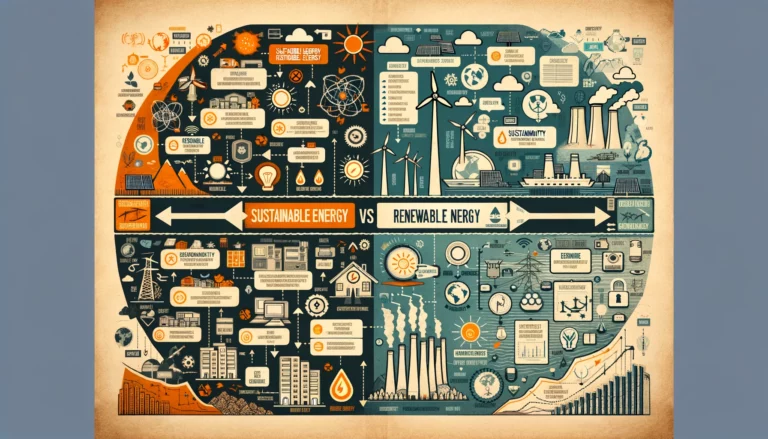Biodiesel, a renewable and biodegradable fuel derived from organic materials, has a fascinating history that spans centuries. The history of biodiesel is not just a tale of scientific innovation but also a narrative of economic necessity and environmental stewardship. From its rudimentary beginnings to its sophisticated contemporary applications, the journey of biodiesel is a testament to human ingenuity and resilience.
Early Beginnings: The Dawn of Renewable Energy
The history of biodiesel can be traced back to the late 19th century, specifically to the World’s Fair in Paris in 1900. It was at this event that Rudolf Diesel, the inventor of the diesel engine, showcased his engine running on peanut oil. Diesel’s vision was ahead of its time; he believed that vegetable oils could be the future of fuel. In his words, “The use of vegetable oils for engine fuels may seem insignificant today. But such oils may become, over time, as important as petroleum and the coal-tar products of the present time.”
The Pre-Petroleum Era: Organic Fuels in the Spotlight
Before the petroleum era took off, organic oils were seriously considered as potential fuels. Early experiments with various plant oils demonstrated their potential as energy sources, laying the groundwork for future developments in biofuels. However, the advent of cheap and abundant petroleum quickly overshadowed these early experiments. Yet, the groundwork was laid, and the potential of biodiesel was firmly established in the scientific community.
The Resurgence of Biodiesel: Wartime Innovations
The history of biodiesel took a significant turn during the World Wars. The scarcity of petroleum forced many countries to explore alternative fuels. During World War II, for instance, countries like Germany and Japan experimented with vegetable oils to power military equipment. Although these efforts were abandoned mainly post-war due to the resurgence of petroleum, they marked a crucial period in the development of biodiesel.
The 1970s Oil Crisis: A Catalyst for Change
The 1970s oil crisis was a pivotal moment in the history of biodiesel. The sudden spike in oil prices and the realization of finite petroleum resources sparked a renewed interest in alternative fuels. Researchers and scientists have seriously begun to consider biodiesel as a viable substitute. This era saw significant advancements in the production and refinement of biodiesel, setting the stage for its modern applications.
Modern Biodiesel: Technological Advancements and Environmental Benefits
Fast-forward to the 1990s and early 2000s, biodiesel had firmly established itself as a contender in the alternative fuels market. Biodiesel’s environmental benefits became a major driving force behind its adoption. Compared to traditional diesel, biodiesel produces significantly fewer greenhouse gases, making it a key player in the fight against climate change.
Technological Innovations: Enhancing Efficiency and Production
Modern advancements have greatly improved the efficiency and feasibility of biodiesel production. Innovations in agricultural practices, genetic engineering of oil-producing plants, and improvements in the transesterification process have all contributed to making biodiesel more accessible and cost-effective.
Environmental Impact: A Greener Alternative
The environmental benefits of biodiesel cannot be overstated. Unlike petroleum diesel, biodiesel is biodegradable and non-toxic. Its use results in a substantial reduction in carbon monoxide, particulate matter, and unburned hydrocarbons. Moreover, biodiesel can be produced from waste oils and fats, providing a sustainable solution to waste management.
The Global Biodiesel Industry: A Flourishing Market
Today, the biodiesel industry is a global powerhouse. Countries around the world have embraced biodiesel for its environmental benefits and energy security. The European Union, for instance, has been a leader in biodiesel production and consumption, driven by stringent environmental regulations and robust government support.
United States: A Growing Market
The biodiesel industry in the United States has grown significantly over the past two decades. Government incentives, such as the Renewable Fuel Standard (RFS), have played a crucial role in promoting biodiesel. The RFS mandates a specific volume of renewable fuel to be included in transportation fuel, encouraging the adoption of biodiesel.
Asia and South America: Emerging Leaders
Countries in Asia and South America are also emerging as significant players in the biodiesel market. Brazil, for instance, has capitalized on its abundant soybean oil production to become one of the leading biodiesel producers. Similarly, countries like Indonesia and Malaysia are leveraging their palm oil resources to boost biodiesel production.
Challenges and Future Prospects: The Road Ahead
Despite its many benefits, the biodiesel industry faces several challenges. Feedstock availability and cost remain significant hurdles. The reliance on agricultural products for biodiesel production can lead to competition with food resources, raising ethical and economic concerns.
Innovations in Feedstock: Algae and Beyond
To address these challenges, researchers are exploring alternative feedstocks. Algae, for example, holds great promise due to its high oil yield and ability to grow in non-arable land. Advances in biotechnology are also paving the way for the use of genetically modified organisms to produce biodiesel more efficiently.
Policy and Regulation: Shaping the Future
Government policies and regulations will continue to play a critical role in the future of biodiesel. Supportive policies, such as subsidies and tax incentives, can drive further growth in the industry. Additionally, international cooperation and agreements on carbon emissions could bolster the adoption of biodiesel globally.
Conclusion: The Legacy of Biodiesel
The history of biodiesel is a rich tapestry of innovation, resilience, and environmental stewardship. From its humble beginnings in the late 19th century to its present-day status as a key player in the renewable energy landscape, biodiesel has come a long way. Its journey is far from over, with new advancements and challenges shaping its future.
As we look ahead, it is clear that biodiesel will continue to play a crucial role in our quest for sustainable energy solutions. By embracing the lessons of the past and harnessing the innovations of the future, we can ensure that biodiesel remains a vital part of our energy portfolio for generations to come.
If you have any questions or want to learn more about biodiesel and its history, feel free to reach out to us at Lee Enterprises Consulting. We are here to help you navigate the complexities of renewable energy and find the best solutions for your needs.





